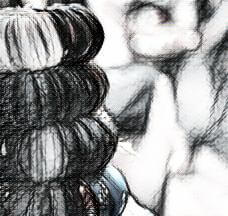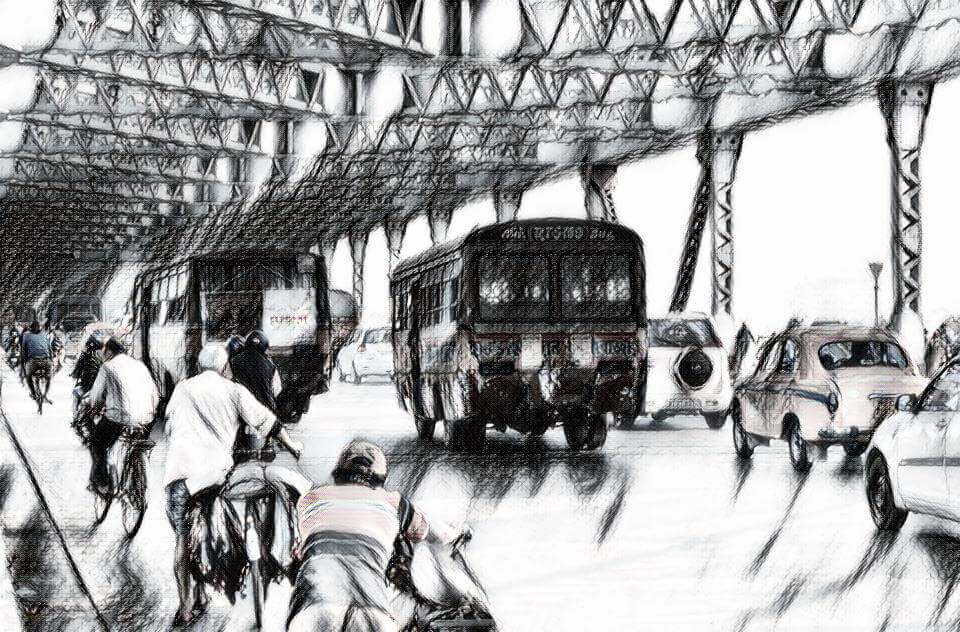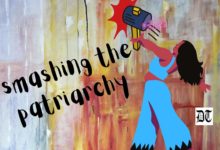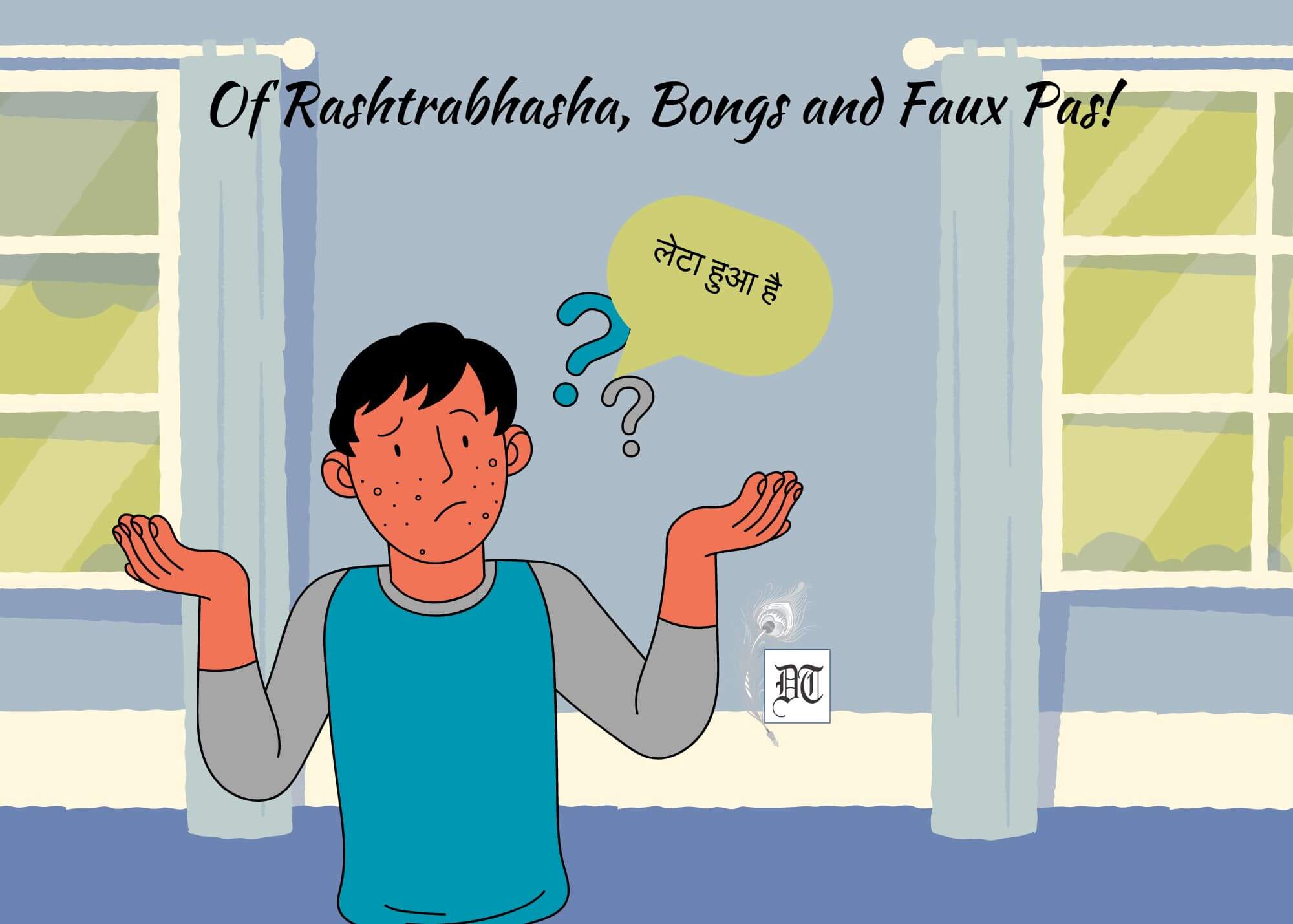Soumya walks down the memory lane and tells us about the Boy, the protagonist, and his growing up days. An interesting account for Different Truths.
The news created a sensation around their little neighbourhood. Boy’s family was shifting to Kolkata. It was the dream city for the kids around. Boy didn’t see what the fuss was about, as they often visited Calcutta, where his mom’s family lived.
In fact, he was a little scared, because on his last visit to Calcutta, as it was then called, he had witnessed a strange and scary spectacle, deserted roads, and buildings on fire. It was called a riot. He was apprehensive that Calcutta had riots.
In fact, he was a little scared, because on his last visit to Calcutta, as it was then called, he had witnessed a strange and scary spectacle, deserted roads, and buildings on fire. It was called a riot. He was apprehensive that Calcutta had riots. Later he was to witness many, and one changed the course of his life forever.
But we will speak of that later. Right now, I will force this undisciplined memory back to Cuttack.
Oops, it leaked out. The original plan was to keep names, places and dates unspecified, as the story is about an era and a milieu, and the small town could be anywhere in India.
Boy was excited about a change of scene and thrilled at the jealousy he generated in his tormentors. His chief prosecutor, a hardboiled boy declared “What’s so great about Calcutta? I’ve lived there for years.”
Boy was excited about a change of scene and thrilled at the jealousy he generated in his tormentors. His chief prosecutor, a hardboiled boy declared “What’s so great about Calcutta? I’ve lived there for years.”
“Me too! “Chimed in the others
The leader elaborated “When I was in Calcutta, I drove trucks” That being the most glamorous profession in the gang’s eyes.
“So, did I!” declared a slightly older girl who resented his leadership.
“When I was in Calcutta, I wore bangles up to here” chipped in a little girl, whose new colourful glass bangles were her pride and joy, and she wanted the gang’s attention to focus on it.

“When I was in Calcutta, I wore bangles up to here” chipped in a little girl, whose new colourful glass bangles were her pride and joy, and she wanted the gang’s attention to focus on it.
“When I was in Calcutta driving trucks, I wore bangles up to here” indicating her elbows the older girl proclaimed, not to be overshadowed by the little miss.
But Bhombol, the leader, had to have the final word. “When I was in Calcutta, driving trucks, I wore bangles up to here” indicating his shoulders, leaving no room for further one up man- or woman-ship, and glared around daring anyone to contradict him.
Boy, of course, believed everything he heard and visualised these tiny boys and girls wearing turbans… driving huge trucks, wearing bangles up to the shoulders.
Boy, of course, believed everything he heard and visualised these tiny boys and girls wearing turbans, (as all truck drivers Boy had seen were Surds, he thought that turbans were part of the uniform. Later, when his in-laws were of this turban-wearing faith, his pop-in-law had shared a hilarious story about this popular bong misconception, but again, memory is running haywire and will be dragged back. It will be worth the wait. Let us go back to Cuttack) driving huge trucks, wearing bangles up to the shoulders. It was a surreal image, though the term was something Boy learnt years later.
The move happened, with promises of staying in touch that never happened, and they moved to his maternal grandparents’ home in Kolkata till a more permanent home was ready.
It was a large house, with red cement floors, green windows with latticed shutters, scary bathrooms which held the worst terrors of Boy’s young life, cockroaches. He has never recovered from this phobia though all others like ghosts, vampires, bullies, cops, riots, thieves, people, girls, speaking in a crowd and exams have long ceased their reign of terror.
It was a large house, with red cement floors, green windows with latticed shutters, scary bathrooms which held the worst terrors of Boy’s young life, cockroaches. He has never recovered from this phobia though all others like ghosts, vampires, bullies, cops, riots, thieves, people, girls, speaking in a crowd and exams have long ceased their reign of terror.
Grandpa was a retired civil servant, the first native to hold several high positions in India, with the grand title of Rai Bahadur, who after decades of living like a brown Englishman, had turned Bengali with a vengeance.
He wore dhoti kurtas exclusively, or Punjabis as they are called in Bangla, ate on the floor sitting on ornate velvet mats called áshon off intricate metal dinner sets consisting of thalis or copper plates which looked like artwork, surrounded by dozens of katoris or batis or bowls each with a different dish.
He wore dhoti kurtas exclusively, or Punjabis as they are called in Bangla, ate on the floor sitting on ornate velvet mats called áshon off intricate metal dinner sets consisting of thalis or copper plates which looked like artwork, surrounded by dozens of katoris or batis or bowls each with a different dish. Meals were an elaborate affair. The men always ate first, along with the children, and women followed later, servants last. The men merely tasted many dishes, the leftovers being finished by the ladies and servants in that order. Children, of course, had first preference, and the boy reigned supreme.
An exception was made for Boy’s father, who, in a suit and tie, ate half-boiled eggs in a cup and toast, or poached eggs and tea, sitting in at a table and chair specially set out for him. The top of the egg was sliced off, and the interiors scooped out after being sprinkled with salt and pepper. Boy desperately wanted to have that English breakfast, but never articulated his desire.
He ate luchi, a puffed maida poori fried in ghee of exquisite delicacy, with fried vegetables and curry. Later, when he tried it, it was quite ghastly. Today, when he is condemned to bread and eggs for breakfast, he would die or kill for those luchis. One must be incredibly careful what one wishes for.
He ate luchi, a puffed maida poori fried in ghee of exquisite delicacy, with fried vegetables and curry. Later, when he tried it, it was quite ghastly. Today, when he is condemned to bread and eggs for breakfast, he would die or kill for those luchis. One must be incredibly careful what one wishes for.
The process of school admissions began afresh. He was subjected to another interview with ‘fathers’ in white gowns and teachers in short skirts for the label of a posh school. The boy stared blankly at the many questions asked in incomprehensible English. It was a lost cause till the Principal in his Irish accent pointed out at an aquarium with the question” What is this?”
A simple “fish” was what he in all probability was looking for. But the boy had an aquarium at home and knew what it was called.
A simple “fish” was what he in all probability was looking for. But the boy had an aquarium at home and knew what it was called.
“Aquarium” he confidently proclaimed. Family lore has it that it was this aquarium that got him into this prestigious school. He spent the next thirteen years there, some of it happy, till he finally escaped to freedom, delinquency, and confidence to think and fend for himself, in a university at the far corner of the country.
I, his creator, will carry on the saga of the Boy, his roots, his experiments with truth and sex, and his discovery of himself and his place in the chaos of life.
I, his creator, will carry on the saga of the Boy, his roots, his experiments with truth and sex, and his discovery of himself and his place in the chaos of life. Please stay with me on the course. I will try not to disappoint you too much. Maybe you will see yourself here.
Visuals by Different Truths





 By
By

 By
By
This beautiful city inhabits many worlds and eras,nostalgic yet unfamiliar, your great sketch measured with the iconic Howrah bridge as the proscenium stage, yes there is a distinct character –vibrancy leaving a physical imprint that will never dwindle,the bridge links the memories and the ambassador –lesser viruses die, and as a prism through which to view this city with a soul, is facing entropy, warren hastings could never imagine this in 1772
The city , which was leased out yearly by the Mughals for Rs 3000 is no stranger to demographic change ,
with my deepest regard to your creative flow of writing that absorbs any reader, i wish to share a few lines which i read and liked: kolkata
Its a beautiful place to be born into, if you don’t mind a touch of hell now and then,just when everything is fine, because even in heaven they dont sing all the time.
Yes nature’s beauty shall once again rise with the dawn,
from the east
Rana
Your comments gladden the heart and inspire wannabe writers. Shukriya